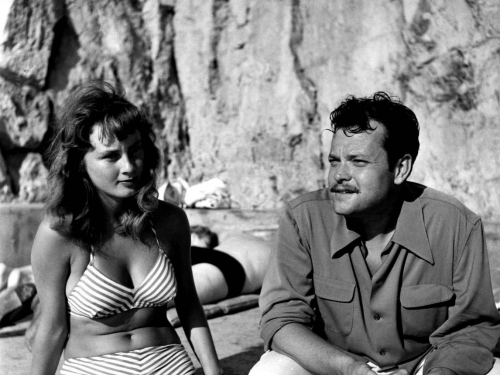
A Psychoanalysis of the Beach
André Bazin is sometimes called “the inventor of film criticism”. Entire generations of film critics and filmmakers, especially those associated with the Nouvelle Vague, are indebted to his writings on film. Film opens a “window on the world”, according to Bazin. His writings would also be important for the development of the auteur theory. Bazin: “For those who do not participate in it, the reality of luxury naturally provokes the painful awareness of being banned. Its cinematographic dramatization, on the contrary, equals its realization and the euphoria of possession.”